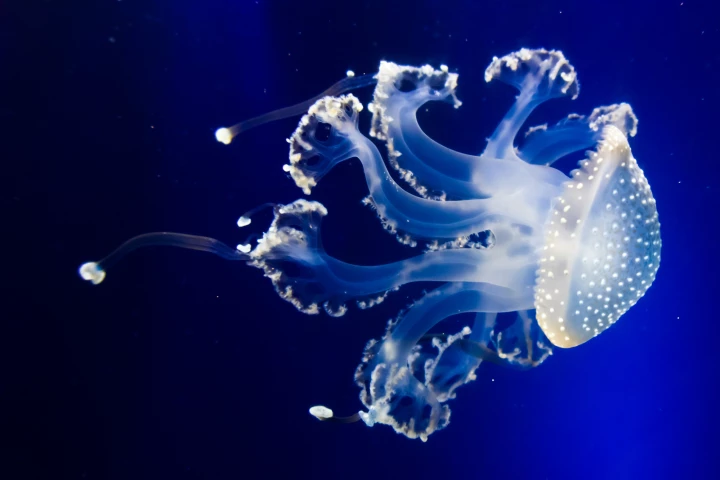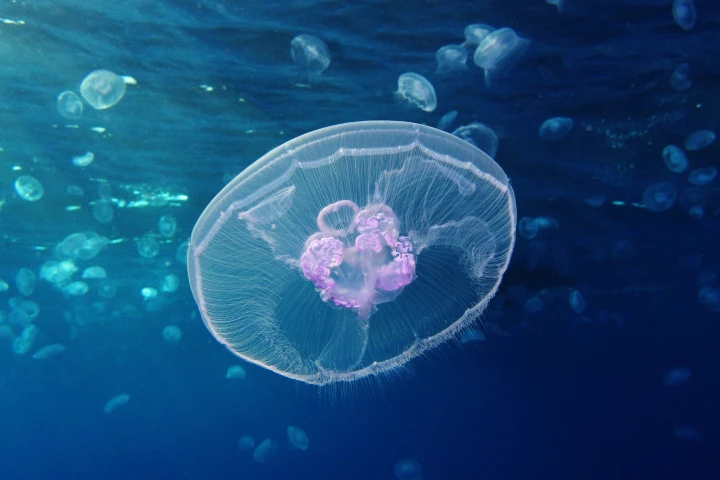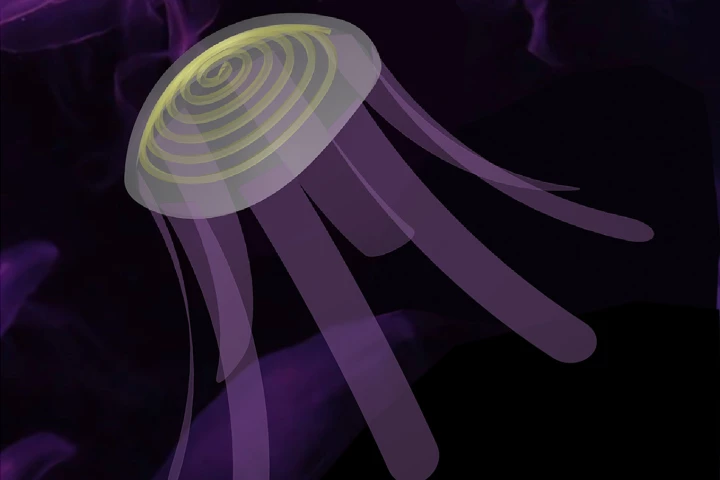jellyfish
-
Imagine being horribly maimed and the only way to survive was to merge your damaged flesh with another injured human. Scientists have discovered this startling ability in comb jellies, which can fuse together to share a nervous and digestive system.
-
If you want to gather climate-change data from the deep ocean, why not hitch a ride with an organism that's going down there anyways? That's the thinking which led to the creation of "biohybrid jellyfish" which pack two speed-boosting technologies.
-
An experimental new forensic spray allows latent fingerprints to be made visible in just 10 seconds, plus it doesn't require the use of any messy powders. What it does incorporate, however, is a glowing protein that's obtained from jellyfish.
-
The flapping motion of a new robotic jellyfish is not only good for propulsion, but it can also draw small bits of debris up from the ocean floor without contact. Such a robot could remove trash from delicate ocean environments, like coral reefs.
-
When it comes to developing robots that can move efficiently through water, scientists regularly turn to creature’s like jellyfish for inspiration, and a UK research team has just produced one that can swim with the best of them.
-
The uniquely efficient movement of jellyfish has made them a popular model of study for robotics researchers, and scientists are now showing off a new machine inspired by these creatures that uses air channels to swim at great speeds.
-
Scientists at Caltech and Stanford University have developed a tiny prosthetic that gives jellyfish an ability to swim faster while using less energy, all with the aim of one day using them to monitor the ocean environment.
-
Researchers have developed ultra-gentle robotic grippers that can grasp and release jellyfish and other very soft marine animals without harming them.
-
Although jellyfish may not be the fastest animals in the ocean, they do swim in an energy-efficient manner – a manner that underwater robots might do well to copy. With that in mind, Chinese scientists have created a robotic jellyfish, that may someday autonomously explore the briny depths.
-
A team of engineers in Germany has created a tiny jellyfish-inspired robot, which can not only swim, but transport objects, mix fluids and even bury itself. It's hoped the five millimeter tetherless "jellyfishbot" could help us understand the survivability of baby jellyfish in changing environments.
-
The box jellyfish is the world's most venomous creature, with a sting from its trailing tentacles causing intense pain, necrosis of the skin, and in some cases death by cardiac arrest. Now, however, scientists have found an antidote for such stings – and it's an existing cholesterol-lowering drug.
-
Quick: What does a [insert sea creature here] like for lunch? Peanut butter and jellyfish sandwiches, of course. While you could insert sharks, swordfish and tuna in that joke, up until recently, you would have left penguins out because no one thought they ate jellyfish. Turns out, we've been wrong.
Load More











